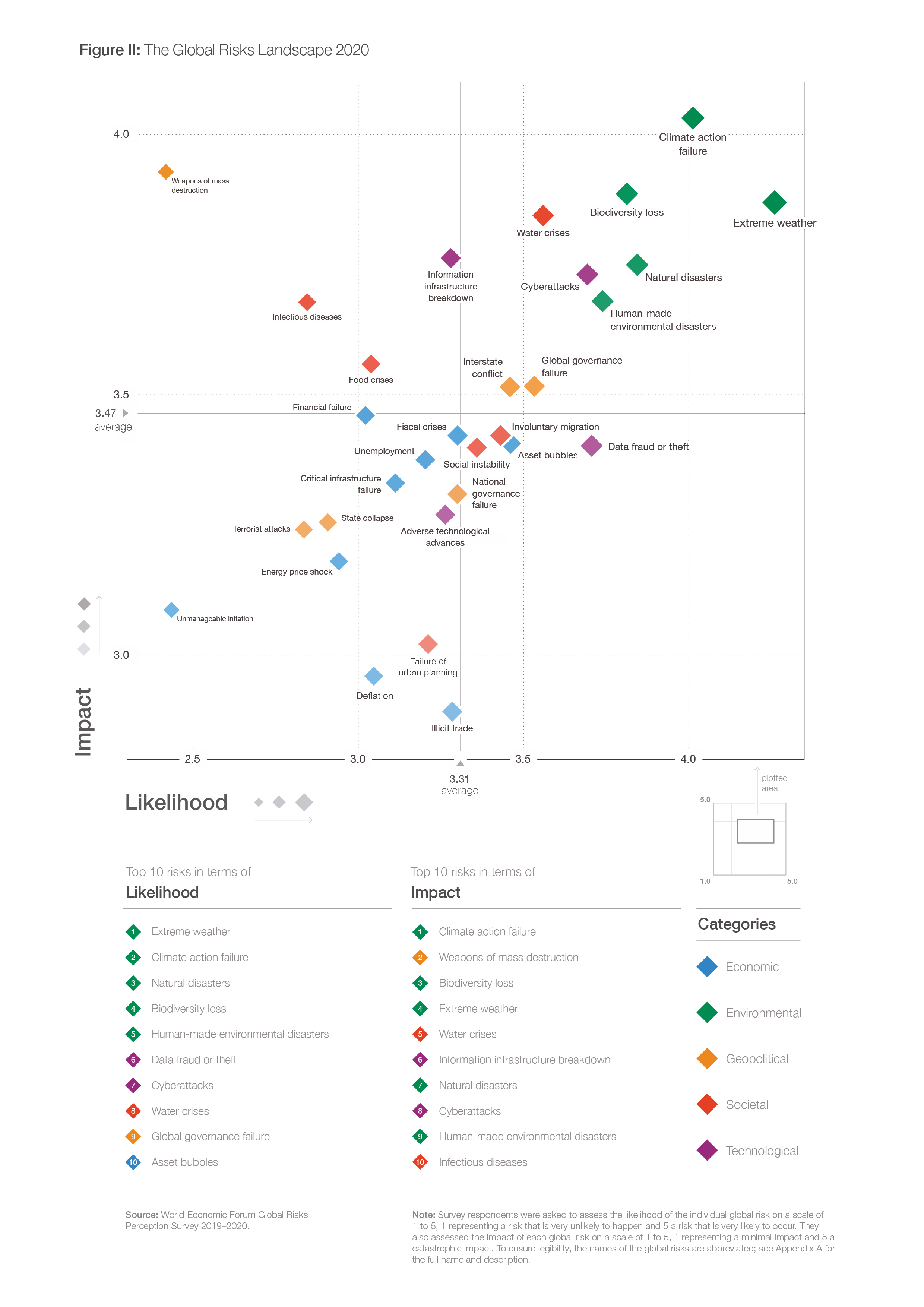WEF Risks Report Ranks Climate Change as Biggest Global Threathttps://www.dw.com/en/wef-risks-report-ranks-climate-change-as-biggest-global-threat/a-51997420In its
15th Global Risks Report published on Wednesday, the World Economic Forum (WEF) has said that for the first time in the report's history all of the "top long-term risks by likelihood" are environmental. While in the previous decade economic and financial crises were seen as most dangerous, the report has found that risk perceptions have shifted to extreme weather, environmental disasters, biodiversity loss, natural catastrophes and failure to mitigate climate change.

"Climate change is a very real and serious threat to society," said Alison Martin, a senior member of Zurich Insurance Group, who helped compile the publication, alongside consultancy Marsh & McLennan and a number of renowned universities from across the world.
"Extreme weather events such as heat waves and flooding are becoming more commonplace and severe, leaving communities to deal with often devastating humanitarian and economic costs," she added.
"The near-term impacts of climate change add up to a planetary emergency that will include loss of life, social and geopolitical tensions and negative economic impacts," the report says, adding that failure of climate change mitigation and adaption is the No. 1 risk by impact and number two by likelihood over the next 10 years.
With it comes the loss of biodiversity — ranked as the second most impactful and third most likely risk for the next decade — which has critical implications for humanity due to the likely collapse of food and health systems and disruptions of entire supply chains.
... WEF describes the world we live in as rife with "geopolitical and geoeconomic uncertainty." Powerful economic, demographic and technological forces are shaping a new balance of power, in which states are increasingly viewing opportunities and challenges through "unilateral lenses."
As a result, alliance structures and multilateral systems are threatening to collapse under the pressure of "nationalist postures in pursuit of individual agendas and economic decoupling."
... Amid fraying global consensus about politics and economics, the WEF fears that 2020 will be marked by heightened economic confrontations and domestic political polarization, the report says.
In addition, weakening economic growth and rising financial inequality are increasing the risk of economic stagnation, while at the same time governments' space to stimulate economies with monetary and fiscal policy is narrowing.
Amid this darkening economic outlook, people's discontent with their political leaders is set to harden, leading to more public protests that are potentially weakening the ability of governments to take decisive action should a downturn occur.
But without economic and social stability, countries could lack the "financial resources, political capital or social support needed to confront key global risks."
 Report: http://www3.weforum.org/docs/WEF_Global_Risk_Report_2020.pdf
Report: http://www3.weforum.org/docs/WEF_Global_Risk_Report_2020.pdf
